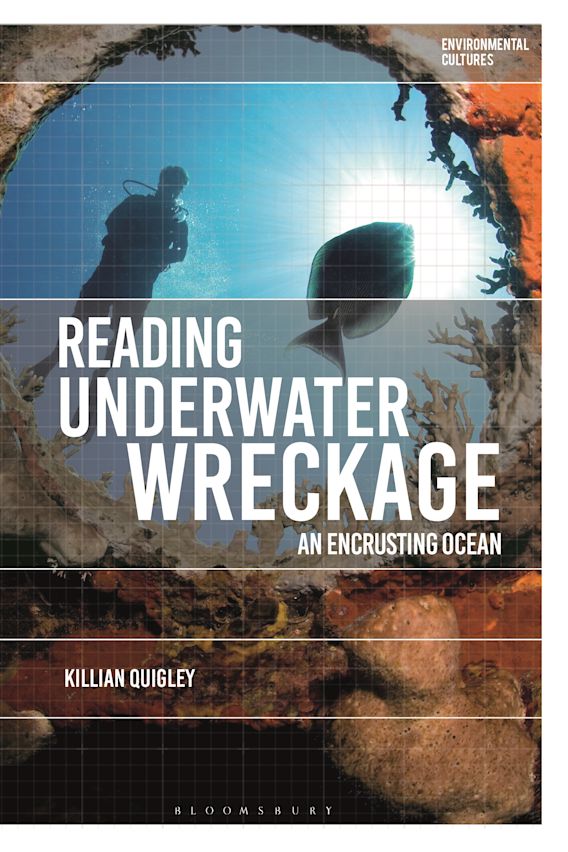In "Reading Underwater Wreckage", Killian Quigley puts the environmental humanities, and particularly multispecies studies, in close conversation with literary studies, history, and aesthetic theory.

Killian Quigley, Research Fellow at Australian Catholic University’s Institute for Humanities and Social Sciences, discussed his book Reading Underwater Wreckage: An Encrusting Ocean (Bloomsbury, 2023) on Monday, 17 April 2023, at 10:00 Central European time and 18:00 Australian Eastern time in Melbourne, in the Greenhouse environmental humanities book talk series.
Presenting a novel and needed theoretical model for interpreting shipwrecks and other drowned fragments-the histories they tell, and the futures they presage-as junctures of artefact and ecofact, human remains and emergent ecologies, this book puts the environmental humanities, and particularly multispecies studies, in close conversation with literary studies, history, and aesthetic theory.
Earth’s oceans hold the remains of as many as three million shipwrecks, some thousands of years old. Instead of approaching shipwrecks as either artefacts or “ecofacts,” this book presents a third frame for understanding, one inspired by the material dynamism of sea-floor stuff. As they become encrusted by oceanic matter-some of it living, some inanimate-anthropic fragments participate in a distinctively submarine form of material relation. That relation comprises a wide, and sometimes incalculable, array of things, lives, times, and stories.